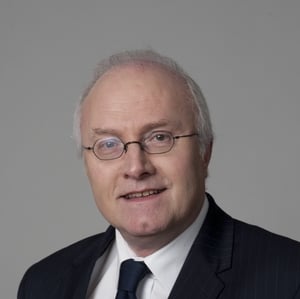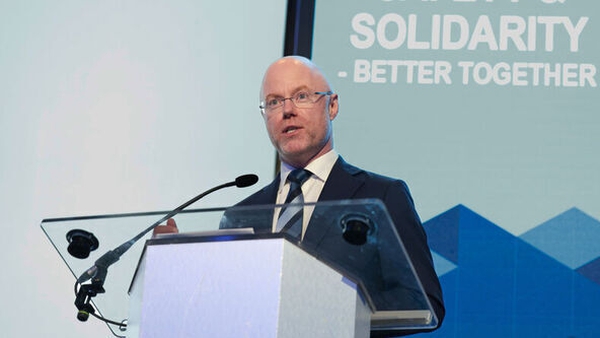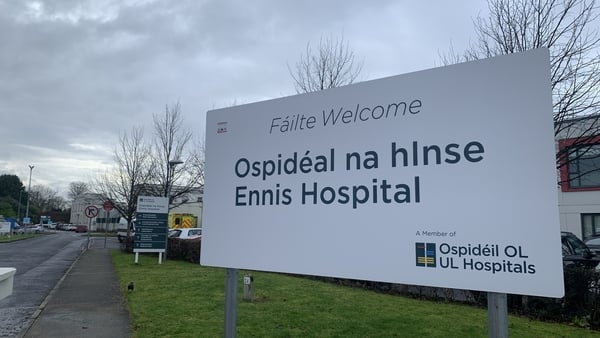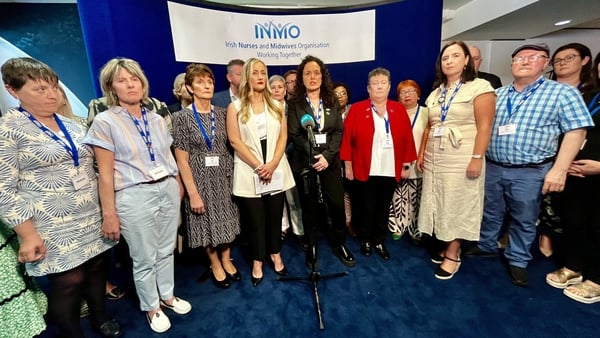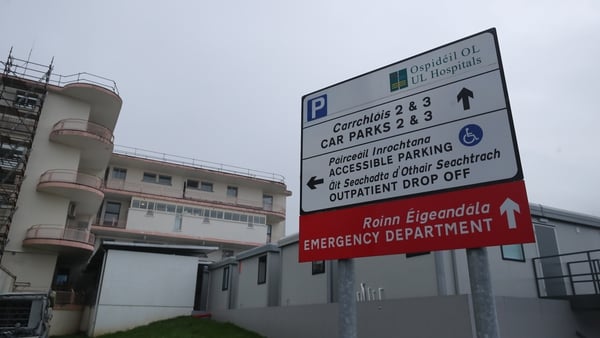The Irish Medical Organisation has said that hospital overcrowding is not a new phenomenon and nor are the solutions but that it is a persistent and grave danger to patients.
IMO assistant director of policy and international affairs Vanessa Hetherington was speaking at an Oireachtas committee hearing on the issue.
She said the persistent overcrowding crisis in hospitals, like record hospital waiting lists, are the direct results of an equally persistent failure, by successive governments, to invest in bed capacity, infrastructure and medical workforce to meet the needs of a growing and ageing population, a fact which the IMO had reiterated consistently to politicians.
The IMO said there is unfortunately no quick fix to hospital overcrowding, however without concerted investment across our health system, Ireland will likely be discussing hospital overcrowding crisis for many years to come.
She said that 5,000 extra hospital beds are needed and the critical care bed capacity should be 550 beds.
The committee heard from a number of health unions on overcrowding, the Irish Nurses and Midwives Organisation (INMO), SIPTU, Fórsa and the IMO.
The INMO said said there must be zero tolerance for overcrowding in hospitals and emergency departments.
We need your consent to load this rte-player contentWe use rte-player to manage extra content that can set cookies on your device and collect data about your activity. Please review their details and accept them to load the content.Manage Preferences
INMO General Secretary Phil Ní Sheaghdha said that patients cannot get a decent night's sleep and some return from a procedure to be put back on their trolley and it becomes their permanent base.
She said the physical and mental health of nurses and midwives working in hospitals and community settings must be a priority for the Health Service Executive and other health employers.
She said that health and safety legislation must be strengthened to ensure the nurses working in our hospitals are protected.
She said that when those on the frontline are sounding the alarm over overcrowding or any health and safety matter, statutory agencies must carry out their role and inspect and make recommendations to
the Minister for Health.
Catherine Keogh, Assistant General Secretary, Health and Welfare Division, Fórsa, said that the discourse is, consequently, always stuck in crisis mode and this contributes to a wider sense of understandable anxiety about access to healthcare when people need it.
She said the only way to deal with the issue was to tackle the underlying problem.
SIPTU told the committee that emergency departments have become a chokepoint for wider issues within the health service and while it is crucial that those issues particular to EDs are resolved as a matter of urgency there is a need to look at alternative pathways to care.
John McCamley, Sector Organiser, said the health service was returning to pre pandemic overcrowding levels.
He said that the national average for turnaround times at an emergency department now stands at 54mins and 38 but they have seen delays of seven to 14 hours at times.
Fine Gael TD Bernard Durkan said that urgent progress was needed and the situation was outrageous.
He said that for years people were told that the hospital system did not need more beds.
Mr Durkan said it was clear that extra beds were clearly needed and action was required now.
INMO President Karen McGowan said the indignity patients endure is horrendous.
The committee heard that she works as an advanced nurse practitioner in a busy emergency department.
She said the trauma patients face each day is getting worse, is not being managed and people are not being listened to.
Dr Mick Molloy, IMO consultant committee and emergency department consultant, told the committee that delays in the emergency department can lead to death.
He also said patients being allowed to wait for hours on trolleys was a form of torture.
Covid 'still having a big impact'
Separately, Minister for Health Stephen Donnelly has said that Covid-19 is still having a big impact on emergency departments.
He said that in emergency departments, two care pathways are needed - for Covid and non-Covid patients and a lot of space is taken up which would otherwise help.
Speaking at an event in Kildare, Mr Donnelly said that he was very conscious of the level of overcrowding in some emergency departments.
He said he had visited the Galway hospital emergency department in the last few days and what was happening there was not acceptable for patients or staff.
He also said that around the country there were patients in acute hospital beds that have been discharged, and efforts were under way to find places for them to go to.

